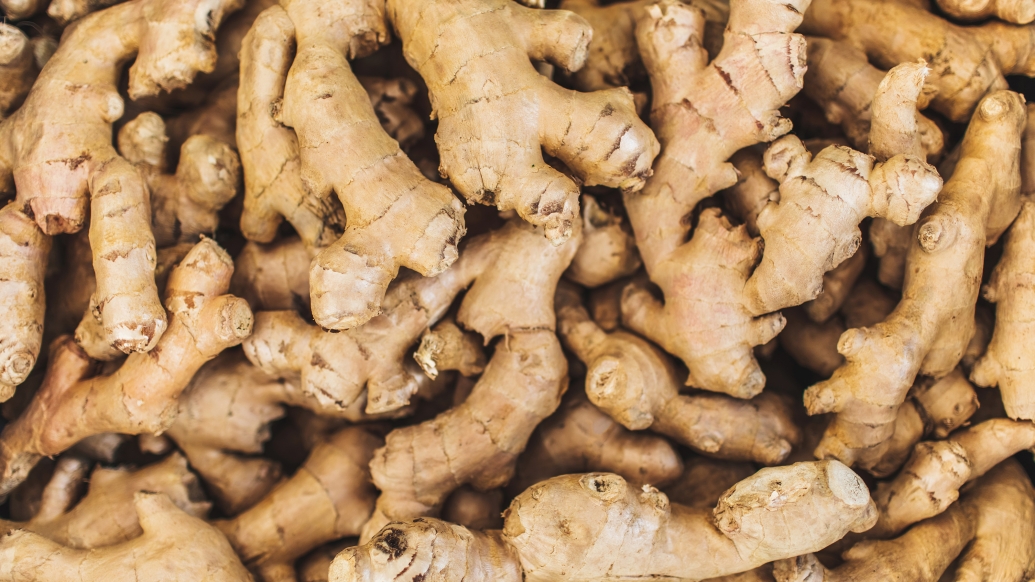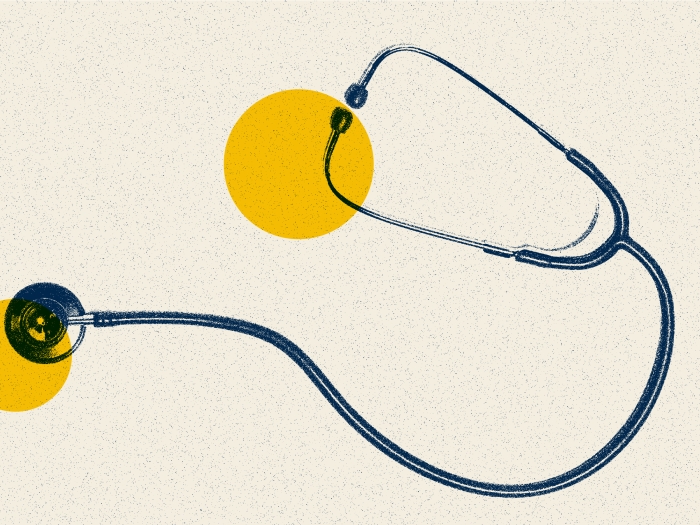After ginger root was proven to halt autoimmune disease progression in mice, researchers are now trialing the same concept in humans
5:00 PM
Author |

There are many suggestions and claims across the internet about natural supplements people with autoimmune conditions can take to relieve symptoms, but little research exists about the specific mechanisms that underlie their potential effects.
So, researchers at the University of Michigan are conducting an ongoing study to determine the effectiveness of one of these natural supplements, ginger.
According to a Michigan Medicine led study published in JCI Insight, ginger supplements modulate the activity of white blood cells called neutrophils and prevent them from releasing inflammatory products called neutrophil extracellular traps or NETs.
Blocking a NET release may help control inflammation and disease in patients with autoimmune diseases such as lupus and antiphospholipid syndrome.
The most abundant active compound in ginger root, 6-gingerol, was found to help autoimmune disease in mice in previous research led by the same group at the University of Michigan.
In this previous work, 6-gingerol was injected into mice with lupus or APS where it demonstrated anti-neutrophil properties. This led to a decrease in symptoms within the mice.
To further this previous research, a trial was conducted with healthy human participants and oral supplements. Trial participants in Michigan and Colorado were asked to take an oral ginger supplement for seven days. The participants had no history of autoimmune disorders.
Blood tests were conducted on participants before taking the supplement, as well as seven days after to examine the impact of the ginger supplement on neutrophil activity.
“In healthy volunteers who took an oral ginger supplement for seven days, we saw a significant decrease in NET release upon stimulation of their neutrophils, indicating their neutrophils were less active,” said Ramadan Ali, Ph.D., a research investigator in the division of rheumatology at the University of Michigan Health System and the lead author of the study.
“This result suggests that ginger could work to decrease the risk of inflammation, blood clotting, and vascular damage by lowering the neutrophil hyperactivity that we know is present in many autoimmune disorders.”
SEE ALSO: Ginger Counters Certain Autoimmune Diseases in Mice
Exploring ginger supplements further
Due to the success seen in healthy individuals, the researchers are now seeking funding to study other populations such as individuals with lupus, APS, or other chronic inflammatory conditions.
“Ginger may have an ability to complement treatment programs that are already underway,” said Jason Knight, MD, an associate professor in the division of rheumatology at the University of Michigan and one of the corresponding authors of the study.
“The goal is to be more strategic and personalized in terms of helping to relieve people’s symptoms.”
Despite the results of this most recent study, Ali and his colleagues cannot yet claim that ginger supplements will help people with autoimmune diseases.
“If natural supplements are something you are curious about, talk with your health care provider about options that will work for you before beginning anything new,” recommended Ali.
Additional authors include Ramadan A. Ali, Miela Zahavi, Christine E. Rysenga, Claire K. Hoy, and Jason S. Knight from the Division of Rheumatology, Department of Internal Medicine at the University of Michigan, Ann Arbor, MI. As well as Valerie C. Minarchick, Kristin A. Strum and M. Kristen Demoruelle from the Division of Rheumatology at the University of Colorodo School of Medicine in Aurora, CO.
Paper cited: “Ginger intake suppresses neutrophil extracellular trap formation in autoimmune mice and healthy humans,” JCI Insight. DOI: 10.1172/jci.insight.17201

Explore a variety of healthcare news & stories by visiting the Health Lab home page for more articles.

Department of Communication at Michigan Medicine
Want top health & research news weekly? Sign up for Health Lab’s newsletters today!





